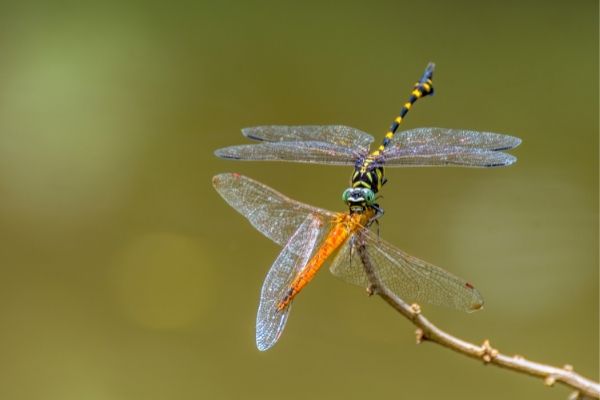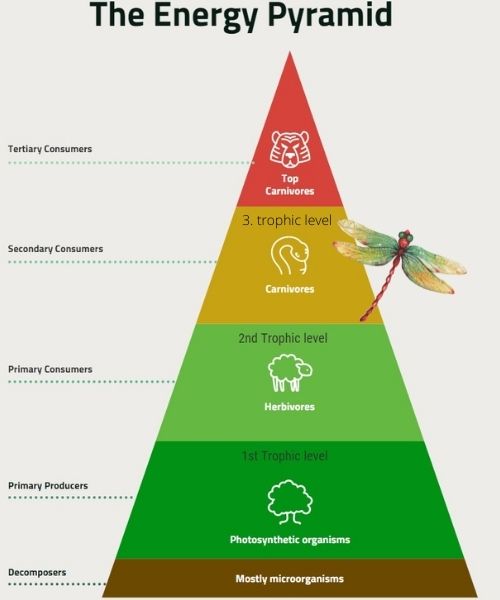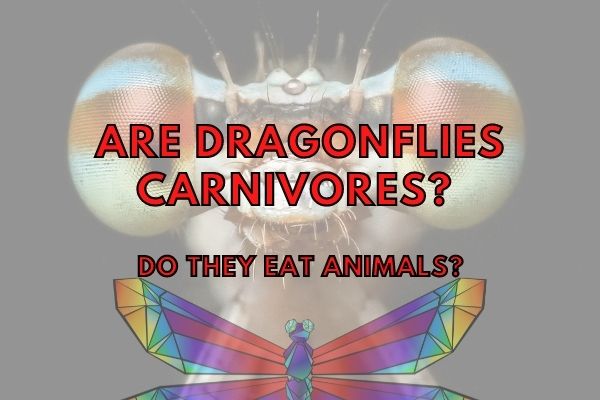Dragonflies are carnivores that live near water and consume flies, midges, and mosquitoes. They are important predators in many ecosystems because they help to control the population of these insects.
Dragonflies are carnivorous consumers that eat other animals. They are not herbivores, decomposers or scavengers, but rather they hunt and kill their prey. This makes them an important part of the food web since they help to keep the population of other animals in check.
Dragonflies have a wide diet that includes flies, midges, mosquitoes, and other small insects.
Their diet changes depending on what is available in their environment and what time of year it is.
For example, in the summertime dragonflies will eat more flies because there are more of them around and in the spring they may eat the caterpillars of butterflies and moths as they hatch.
Habitat and Primary Diet of the Dragonfly
Dragonflies are aquatic insects. They are found in ponds, lakes, streams, and rivers. Dragonflies prefer to live in open areas of water with vegetation nearby.
Dragonflies eat other insects, including flies, aphids, midges, and mosquitoes. They may also eat worms, larvae, caterpillars and tadpoles.
Dragonflies use their strong powerful jaws to catch their prey. They hold their prey in their thorax, or middle section, while they use their sharp mouth parts to suck out the insides.
They slowly chew their pray to peaces or suck out the liquids and leave the shell.
Are Dragonflies Carnivores, Herbivores or Omnivores?
Dragonflies are carnivores because they primarily eat other animals. Dragonflies do not eat plants, fruits or vegetables. They evolved from a long line of aquatic insects who, similarly, did not eat any plants.
However, sometimes, they may get plant matter in the gut of the herbivore prey they ate, but this is consumed unintentionally.
Is a Dragonfly a Producer, Consumer or Decomposer?
Dragonflies are consumers because they eat other living things. Dragonflies are carnivores, which means that they only eat other animals. Only plants as well as some bacteria and protozoa are producers and true decomposers.
What Type of Consumer is a Dragonfly?
Dragonflies are generally secondary consumers because most of the animals eaten by dragonflies eat plants. However, they may eat other predatory insects.

Sometimes dragonflies eat other dragonflies or other carnivorous insects, which effectively makes them tertiary consumers. However, they mainly feed on herbivorous insects.
Can Dragonflies be Considered Decomposers?
No. Whereas dragonflies may occasionally eat dead animals or carrion, they are not considered scavengers or decomposers.
However, the bacteria in the guts of dragonflies may be considered decomposers. Therefore, no dragonfly species are decomposers because decomposers are mainly bacteria and fungi.
Where are Dragonflies in the Food Chain?
As predators, dragonflies sit at the bottom of the food chain and are considered secondary consumers at the 3rd trophic level.

The vast majority of a dragonfly’s diet is composed of small insects like flies and mosquitoes, but they may also eat other dragonflies, which would occasionally qualify them as tertiary consumers.
Is a Dragonfly an Autotroph or a Heterotroph?
Dragonflies are heterotrophs because they eat other living organisms. Practically no animals are autotrophic because animals do not get their energy directly from the sun like plants do.
That is, animals like the dragonflies do not make their own energy, but need to eat other organisms as their energy and carbon source.
What Animals Hunt and Eat Dragonflies?
While dragonflies may not be at the bottom of the food chain, they are not without their own predators.
Some of the most common predators of dragonflies are frogs and birds, but large insects like praying mantises and scorpions will hunt and eat dragonflies for food.
Humans also pose a threat to dragonflies through hunting and habitat destruction.
Conclusion
In this blog post I have looked into the diet of the dragonfly as an interesting animal that is rarely thought about on a day to day basis.
Dragonflies are a group of insects that are interesting because they are both predators and prey, and they are also very important for the food chain in many ecosystems.
Dragonflies are carnivorous and they feed on other insects, but they are also important in the food chain because they are important predators of other insects. Dragonflies are also pollinators in some environments.
If you are interested in insects, I would recommend checking out my other posts on the topic.
I hope you enjoyed reading this post, and I do encourage you to look into my other articles on this blog for more exciting facts about wildlife and animal diets!




